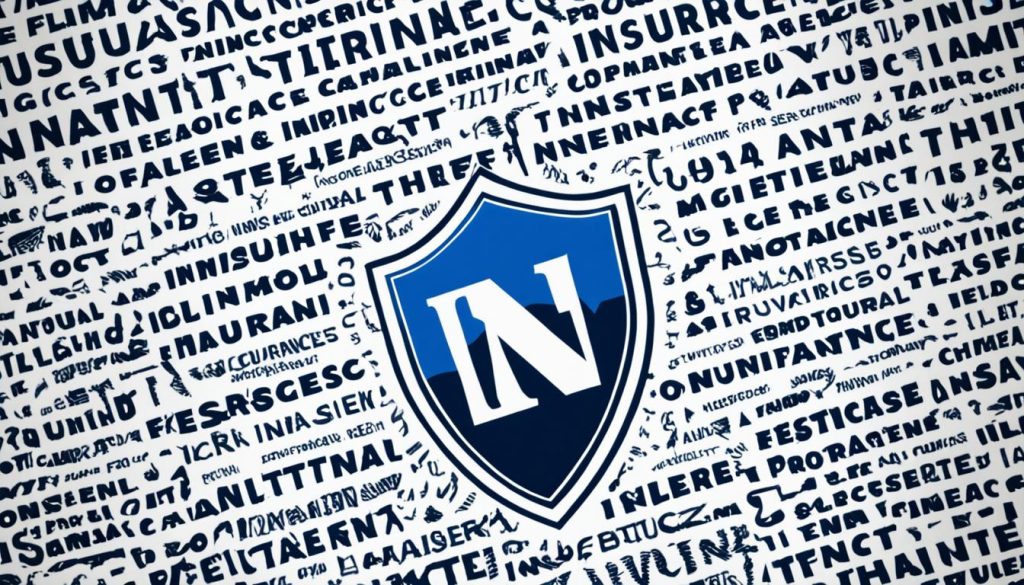5 Essential Reasons Why Your Bussines Need Insurance
As a business owner, you put in much effort to make your company succeed. You invest time and resources to ensure its growth. But, without the right business insurance, your hard work could be at risk. In today’s fast and unpredictable business world, having good insurance is a must. It protects your assets, helps manage risks, and keeps your business going strong.
5 Essential Reasons acts as a safety net. It offers financial protection against many risks and liabilities that could harm your business. Things like property damage, legal claims, cyber threats, and employee injuries are covered. The right policies let you focus on growing your business. By getting business insurance, you show you’re responsible and gain the trust of customers, partners, and employees.
In this article, we’ll look at five key reasons why your business needs insurance. We’ll see how different coverages protect you. Whether you’re starting out or have a big business, knowing about business insurance is key. It helps you make smart choices and keep your company strong for the future. Let’s explore how insurance can protect your assets, manage risks, and keep your business going through tough times.
Table of Contents
Key Takeaways
- Business insurance provides essential financial protection against various risks and liabilities
- Comprehensive coverage is crucial for safeguarding assets and ensuring business continuity
- Insurance helps manage potential legal claims, property damage, and cyber threats
- Having proper coverage demonstrates responsible management and builds trust with stakeholders
- Customizing insurance to your specific business needs is key to effective risk management
Protecting Your Business Assets
As a business owner, protecting my company’s assets is a top priority. These assets include both physical things like buildings and intangible things like ideas. Keeping these safe is key to keeping my business running smoothly and staying ahead in the market.
Safeguarding Physical Property
My business relies on things like buildings, machines, and stock to run daily. I have commercial property insurance to keep these safe from damage, theft, or loss. This insurance helps me recover quickly if something unexpected happens, keeping my business running without big delays.
“Commercial property insurance is an essential safeguard for businesses, providing peace of mind and financial protection against unforeseen events that could otherwise jeopardize their operations and success.”
I work with 5 Essential Reasons to make sure my policy fits my business’s needs. This careful planning helps keep my company stable and growing.
Shielding Intellectual Property
My business also depends on things you can’t see, like trademarks, patents, and copyrights. These are what make my brand and products stand out. To keep them safe, I have intellectual property insurance.
This insurance protects against claims of copyright infringement and other threats to my ideas. With this coverage, I can compete confidently, knowing my unique ideas are secure.
Keeping my business’s assets safe is a big part of my risk management plan. By using commercial and intellectual property insurance, I’m taking steps to protect my business. This ensures my company can face challenges and keep growing in the future.
Managing Potential Risks and Liabilities
As a business owner, I know how crucial it is to handle risks and liabilities. These can come from my company’s actions, products, or services. Without the right risk management and liability insurance, my business could face big financial losses and legal problems.
One key way to shield my business is by getting comprehensive liability insurance. This kind of insurance offers financial protection against claims like bodily harm, property damage, or professional mistakes. With liability insurance, I can rest easy knowing my business is ready for unexpected events and legal issues.
Risk management is also vital for my business. It means spotting and reducing risks. I can do this by setting safety rules, training staff, or getting more insurance for certain risks.
“Risk management is not about eliminating risk; it’s about understanding and managing it effectively.” – David Hillson, The Risk Doctor
Here are some areas where liability insurance and risk management are key for my business:
- Product liability claims
- Professional liability or errors and omissions claims
- Slip and fall accidents on business premises
- Employee injuries or illnesses
- Cyber liability and data breaches
| Type of Liability | Potential Consequences | Insurance Coverage |
|---|---|---|
| Product Liability | Lawsuits, damages, recalls | Product Liability Insurance |
| Professional Liability | Negligence claims, financial losses | Errors and Omissions Insurance |
| Premises Liability | Injuries, medical expenses, legal fees | General Liability Insurance |
| Employee Injuries | Medical costs, lost productivity, lawsuits | Workers’ Compensation Insurance |
| Cyber Liability | Data breaches, reputation damage, legal costs | Cyber Liability Insurance |
By being proactive with insurance and risk management, I can shield my business from financial and legal issues. This ensures my business’s success and stability over time.
Ensuring Business Continuity
In today’s unpredictable business world, keeping your business strong is key to success and financial health. Things like natural disasters, accidents, or equipment failures can stop your business in its tracks. This is where business interruption insurance steps in, offering a safety net for businesses facing the unexpected.
Maintaining Operations During Unexpected Events
Business interruption insurance helps companies keep running when things go wrong. It gives money to cover lost income and expenses from a business disruption. With this insurance, businesses can keep paying their staff, rent, and other bills even when they’re closed or working less.
According to a recent survey, 43% of businesses that faced a big disaster never reopened, and another 29% closed for good within two years. Business interruption insurance can save the day by providing the funds to get through tough times.
Some key benefits of business interruption insurance include:
- Coverage for lost income due to a covered event
- Reimbursement for expenses to keep operations going, like temporary relocation costs
- Protection against losing important customers or clients during a disruption
Recovering from Disasters and Setbacks
Business interruption insurance also helps companies bounce back from disasters and setbacks. It gives the money needed to fix or replace damaged equipment, restock inventory, and cover other costs to get back in business.
| Disaster Type | Average Recovery Time | Potential Financial Impact |
|---|---|---|
| Fire | 3-6 months | $50,000 – $500,000 |
| Flood | 6-12 months | $100,000 – $1,000,000 |
| Cyber Attack | 1-3 months | $50,000 – $250,000 |
Business interruption insurance speeds up recovery, keeping a company’s finances stable and resilient. This is especially crucial for small and medium-sized businesses, which might struggle to survive a long disruption without help.
Buying business interruption insurance is a smart move for companies. It shields them from the financial hit of unexpected events and helps them stay in business and bounce back from hard times.
Attracting and Retaining Employees
In today’s job market, it’s key to draw and keep the best workers. A great way to do this is by offering top-notch employee benefits. These show you care about their well-being and happiness at work.
Offering Competitive Employee Benefits
It’s vital to have a strong employee benefits package to draw in top talent. Things like health insurance, retirement plans, and paid leave are what job seekers want most. These benefits prove you care about their health, money security, and balance between work and life.
Think about adding special perks too. These could be flexible hours, working from home, wellness programs, or chances to grow professionally. Tailoring your benefits to what your workers want makes your company stand out. It makes a strong case for why they should join you.
Providing a Sense of Security and Stability
Workers want to feel safe and stable in their jobs. Offering workers’ compensation insurance shows you’re looking out for them if they get hurt or sick at work. This support during tough times builds trust and loyalty in your team.
“When employees feel secure and supported, they are more likely to remain with the company long-term and contribute to its success.” – Sarah Thompson, HR Director at Acme Corporation
Investing in your employees’ health and growth also makes for a better workplace. It leads to happier workers, less turnover, and more commitment to their jobs. When people feel valued, they stick around, stay engaged, and do their best for your company.
| Benefit | Impact on Employee Retention |
|---|---|
| Health Insurance | Reduces financial stress and improves overall well-being |
| Retirement Plans | Provides long-term financial security and encourages loyalty |
| Workers’ Compensation | Demonstrates commitment to employee safety and support |
| Flexible Work Arrangements | Improves work-life balance and job satisfaction |
Putting employee benefits first and building a supportive workplace sets your business apart. It helps you attract and keep great employees for a long time.
Complying with Legal Requirements
As a responsible business owner, it’s key to make sure your company follows all legal rules. This includes having the right insurance. Many industries have rules that say what insurance you must have to run your business. Not following these rules can lead to big fines, penalties, and legal trouble.
To avoid legal problems and keep your company’s good name, you need to know the insurance rules for your business. This means talking to lawyers, insurance brokers, or groups in your industry. They can help make sure you have the right insurance.
Ignorance of the law is no excuse. As a business owner, it’s your job to know and follow all insurance laws.
Some common types of insurance you must have include:
- Workers’ compensation insurance
- Commercial auto insurance for company vehicles
- Professional liability insurance for certain industries
- General liability insurance
| Industry | Mandatory Insurance | Potential Penalties for Non-Compliance |
|---|---|---|
| Construction | Workers’ compensation, general liability | Fines, stop-work orders, legal liabilities |
| Healthcare | Professional liability, workers’ compensation | Loss of license, fines, legal liabilities |
| Transportation | Commercial auto, workers’ compensation | Fines, vehicle impoundment, legal liabilities |
Putting legal compliance and getting the right insurance first helps protect your business. It shows you’re serious about running your business right. Always check your insurance and keep up with industry laws to stay compliant and worry-free.
Protecting Against Cyber Threats
In today’s digital world, companies face a big risk of cyber threats. These threats can harm sensitive data, disrupt operations, and cause big financial losses. Cyber insurance is now key for companies to protect their assets and keep their reputation safe from cyber attacks.
Safeguarding Sensitive Data
5 Essential Reasons helps protect valuable data from unauthorized access, theft, or changes. This includes things like customer info, financial records, and business secrets. By using strong cybersecurity steps and getting good 5 Essential Reasons, companies can lower the chance of a big data breach.
According to a recent study by IBM and the Ponemon Institute, the average cost of a data breach in 2021 was $4.24 million, with the United States having the highest average cost at $9.05 million per incident.
- Keep software and systems updated to fix weaknesses
- Use strong access controls and authentication
- Encrypt sensitive data when it moves and when it’s stored
- Train employees on cybersecurity best practices
- Work with a trusted cyber insurance provider for full coverage
Mitigating Financial Losses from Cyber Attacks
Cyber insurance is also key in helping companies bounce back from cyber attacks. It covers many costs, like:
- Forensic investigation costs to figure out the breach cause and size
- Legal fees for fines, lawsuits, and settlements
- Notification costs to tell customers and others about the breach
- Public relations costs to protect the company’s image after an attack
- Business interruption losses from system downtime or data loss
| Cost Category | Average Cost (USD) |
|---|---|
| Forensic Investigation | $229,511 |
| Legal Fees | $211,958 |
| Notification Costs | $240,563 |
| Public Relations | $119,751 |
| Business Interruption | $1,420,279 |
By passing on the risk of cyber attacks to an insurance provider, companies can focus on their main work. This gives them peace of mind in a world where cyber threats are more common and costly.
5 Essential Reasons for Maintaining Professional Credibility
In today’s competitive world, keeping a strong professional image is key. It helps build trust with clients, partners, and stakeholders. Having the right insurance, like professional liability insurance, is a big part of this.
Demonstrating Responsibility and Trustworthiness
5 Essential Reasons, or errors and omissions insurance, protects businesses from claims of mistakes or poor service. It shows a company is serious about doing right by its clients. This kind of insurance is a sign of a company’s commitment to quality and client satisfaction.
When companies get this insurance, they tell their clients and partners they care about doing things right. They’re ready to fix any problems that come up. This makes trust grow and strengthens relationships, showing real care for the success of their clients.
“Trust is the foundation of any successful business relationship. By maintaining professional credibility through appropriate insurance coverage, businesses can build lasting partnerships based on mutual respect and confidence.” – Sarah Thompson, Business Insurance Expert
Also, having professional liability insurance can make a company stand out. It shows they’re serious about protecting their clients and keeping a good name. This kind of insurance makes a company look reliable and trustworthy. It helps them draw in and keep good clients, leading to long-term success.
Customizing Coverage to Your Business Needs
5 Essential Reasons. Business insurance is a must-have, but it’s not a one-size-fits-all solution. The risks and coverage need to change from one business to another. The size of your business, what you do, and the challenges you face all matter. Getting insurance that fits your business is key to protecting against losses.
To get the right insurance, you need to assess the risks your business faces. Look at your assets, what you owe, and how you operate. This helps spot where you’re most at risk. Then, you can pick insurance that covers your specific needs, like special equipment or liability for services.
Assessing Your Unique Risks and Requirements
It’s smart to work with insurance pros to understand your risks and needs. They know the insurance world well and can guide you to the best options for your business. They make complex insurance easier to understand and help spot any coverage gaps.
Working with Experienced Insurance Professionals
With insurance experts, you can make sure your insurance plan covers all the risks your business faces. They can also update your coverage as your business changes. Having the right insurance lets you focus on growing your business, knowing you’re protected.
FAQ
What types of insurance are essential for businesses?
Businesses need commercial property insurance, liability insurance, workers’ compensation insurance, business interruption insurance, and professional liability insurance. The coverage needed varies by industry, size, and risks each business faces.
How does business insurance protect my company’s assets?
Business insurance covers losses to physical property like buildings, equipment, and inventory. It also protects intellectual property like trademarks and patents.
What is the importance of liability insurance for my business?
Liability insurance shields your business from claims like bodily injury or property damage. It covers legal costs, settlements, and judgments, protecting your company’s finances.
How can insurance help my business maintain operations during unexpected events?
Business interruption insurance covers lost income and expenses during unexpected events. It helps your business bounce back faster and stay financially stable.
What role does insurance play in attracting and retaining employees?
Comprehensive benefits like health insurance and workers’ compensation are key to attracting and keeping good employees. They offer security and stability, boosting job satisfaction and reducing turnover.
How can I ensure my business is compliant with legal insurance requirements?
Research and understand the laws and mandatory coverage for your industry and location. Working with insurance experts can guide you through these requirements and avoid legal issues.
What steps can I take to protect my business against cyber threats?
Invest in cyber insurance to protect against data breaches and cyber attacks. Use strong cybersecurity steps like software updates, employee training, and data encryption to lower your risk.
How does professional liability insurance support my business’s credibility?
Professional liability insurance shows your business is responsible and trustworthy to clients. It covers claims of negligence or mistakes, keeping your professional reputation strong.
Why is it important to customize insurance coverage to my business’s specific needs?
Customizing insurance is key because each business has different risks and needs. With expert advice, you can make sure your coverage fits your business, securing its future and growth.
There are no reviews yet. Be the first one to write one.










